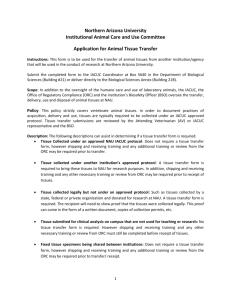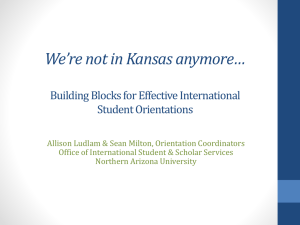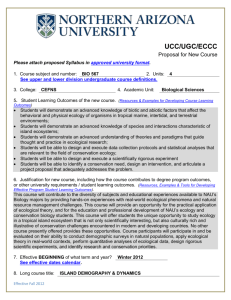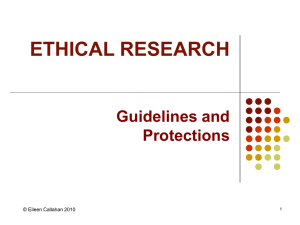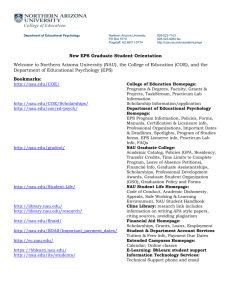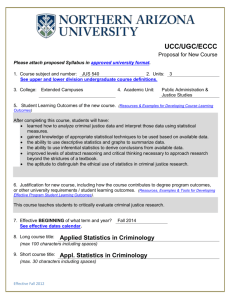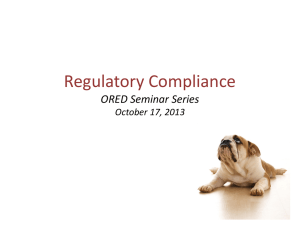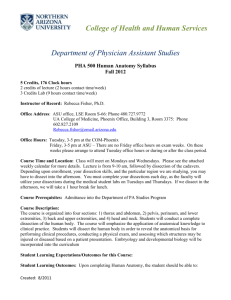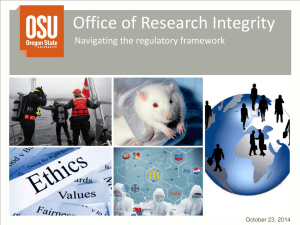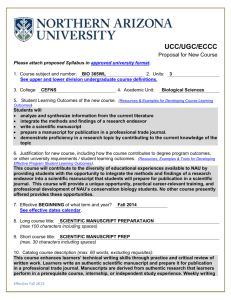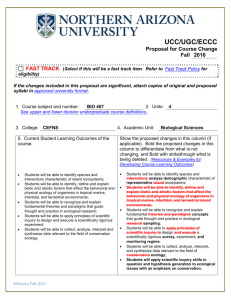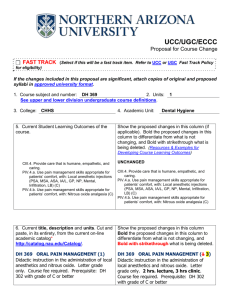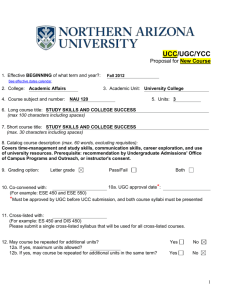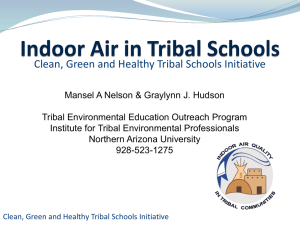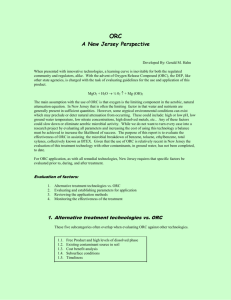Regulatory Compliance at NAU - Northern Arizona University
advertisement
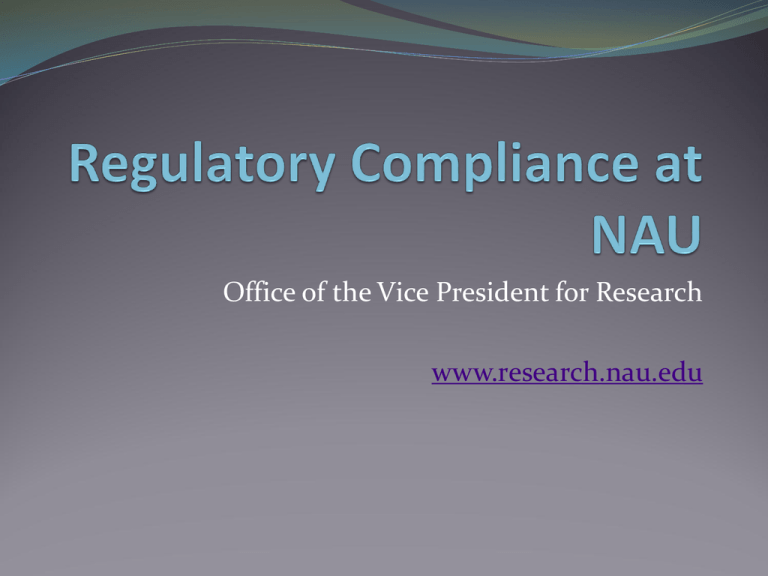
Office of the Vice President for Research www.research.nau.edu Commitment to Research Integrity Northern Arizona University is committed to the highest quality research conducted with integrity and accountability. Through its Responsible Conduct of Research (RCR) program, the Office of the Vice President for Research provides training on research ethics to faculty, students, and staff. Responsible Conduct of Research (RCR) Ethical research practices are not just expected, but required from everyone in the NAU community (faculty, students, and staff) Relates to ALL research, whether biological, social & behavioral, educational, etc. RCR courses available online See the VPR website for related policies on Research Misconduct and Conflict of interest Areas of Compliance and Research Accountability Ethical and responsible Laboratory safety conduct of research Protection of human participants (IRB) Protection of animals in research (IACUC) Protection against biohazards and biological agents (IBC) Occupational health and safety Export control Permits Conflict of interest IRB – Institutional Review Board What is the purpose of the IRB? To review all research involving human participants and make sure federal and state guidelines are followed To ensure minimization of risks to participants To ensure confidentiality of private information To ensure full disclosure of research methods, procedures, outcomes, risks, and benefits What projects require IRB review? Any research involving interaction with living individuals or the collection of personal identifiable information Educational, social & behavioral and biomedical research whether funded or unfunded Dissertations and theses involving human subjects Research that is published, presented, or contributes to the field as generalizeable knowledge See research.nau.edu/compliance/IRB for more information IACUC – Institutional Animal Care and Use Committee What is the purpose of the IACUC? To review all research involving vertebrate animals and make sure federal and state guidelines are followed To assist with expert care of animals throughout research phases To provide training in animal lab techniques and lab animal science What projects require IACUC review? Any work in labs or in the field involving live vertebrate animals in teaching, laboratory demonstrations, or research Animals euthanized for research, teaching purposes, or tissues obtained from a live animal All personnel listed on IACUC protocols and all individuals who have contact with animals (in labs or in the field) must complete training before working with animals See research.nau.edu/compliance/IACUC for information regarding IACUC policies and animal related research IBC – Institutional Biosafety Committee What is the purpose of the IBC? To ensure expert review and monitoring of potentially hazardous materials and experiments To ensure adequate containment of potentially hazardous biologicals, recombinants, toxins and transgenic/KO animals To monitor, at a minimum, on an annual basis the experiments and the facilities To provide a means of communication among researchers, management, IACUC, IRB and IBC the potentially hazardous protocols To ensure that NIH and other regulatory guidelines are followed, documented and reviewed What requires IBC review? Any research involving recombinant DNA, toxins, transgenic/knockout animals and level 2 & 3 biological agents Any work with hazardous plants, animals, and insects New labs and research facilities that may house the projects listed above Reviews are required before the work begins or any materials are procured See research.nau.edu/compliance/orc/biosafety Environmental Health & Safety (EH&S) Office of Regulatory Compliance (ORC) Manages chemical and radiation safety programs Manages environmental (air, water, and waste) program Coordinates the loss prevention program Provides hazard evaluation, compliance assessment, and hazardous material shipping Provides applicable training and manuals Assistance available for: job hazard ergonomic assessments compliance audits exposure monitoring safety training, or materials hazardous waste disposal assessment environmental permitting questions asbestos inspections Contact EH&S at research.nau.edu/co mpliance/ORC Permits are required for: the import or export of any material that contains biologics, e.g., soils, DNA, animals and plants or animal/plant parts or pieces, certain chemicals and radioactive material controlled pharmaceuticals access to reservation lands the banding/tracking of wild animals How to get a permit: Permits can take anywhere from 2 weeks to 6 months to get, depending on the agency Contact John McGregor (John.McGregor@nau.edu), Director of Regulatory Compliance, for a permit or question about permits See research.nau.edu/compliance/ORC for more information Export Control Due to national security concerns, the remittance of certain items and materials outside of the United States may require a permit from a government agency If you are not sure if something you are sending, delivering, or carrying with you out of U.S. requires a permit, contact ORC and they will research the regulations for you Contact research.nau.edu/compliance/ORC Conflict of Interest All university employees embarking on research must disclose their or their spouse’s financial interests greater than $10,000 Disclosures are reported to and reviewed by the Office of the Vice President for Research and enforced by the Grant & Contract Services Failure to comply could result in disciplinary action taken by the University or funding agency For more information, see research.nau.edu/compliance/policies More Resources For RCR, IRB, and IACUC online trainings, go to www.citiprogram.org For NAU Research policies, see research.nau.edu/compliance/policies The U.S. Department of Health and Human Services, Office of Research Integrity is at ori.dhhs.gov Any QUESTIONS?? Our contact information: Sarah Ells, Loss Prevention Coordinator, 523-3961, Sarah.Ells@nau.edu Paula Garcia McAllister, IRB Director, 523-4236, Paula.Garcia@nau.edu

